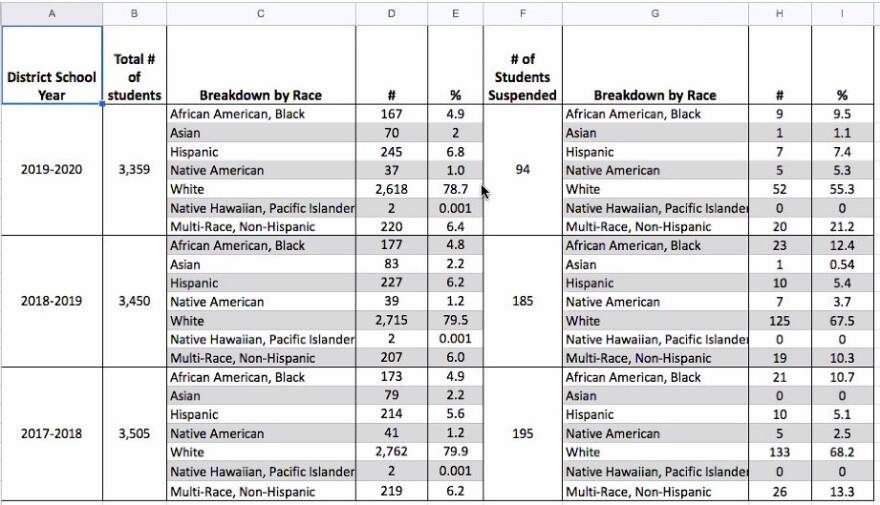Students of color in the Falmouth Public Schools received 45 percent of the suspensions in the last school year, even though they make up only 21 percent of the student population.
The Falmouth School Committee examined the data Tuesday, following recent complaints about racial disparities in school discipline.
School Committee member Andrea Thorrold said the situation needs to change.
“The disparity being double or triple the representation of those students within our school population, that's not OK,” she said. “That's not acceptable. We need to admit that; we need to be very clear about that.”

Black, Hispanic, Native American, and multi-racial students were overrepresented in suspensions. The difference was especially stark for multi-racial students in the 2019-2020 school year; they comprised just 6.4 percent of the population but received more than one in five suspensions.
Asian students, at 2 percent of the population, received 1 percent of suspensions.
White students, in contrast to the other groups, received substantially fewer suspensions than would be proportional for their numbers — 55 percent of the suspensions for 79 percent of the population.
In addition, the share of suspensions given to white students declined over the last three years. It was 68 percent in the 2017-2018 school year.
After a discussion of the data, Natalie Kanellopoulos, vice chair of the School Committee, said the district should focus on the bottom line.
“We could say that you're twice as likely, if you're a person of color, to be suspended,” she said. “So I think that we shouldn't go too far down — in my opinion — down the rabbit hole of how we look at these numbers. I think the most direct, concrete way, is how we can actually effect change in our district.”
School and district administrators said they have been learning about restorative practices and planning professional development on race and justice.








